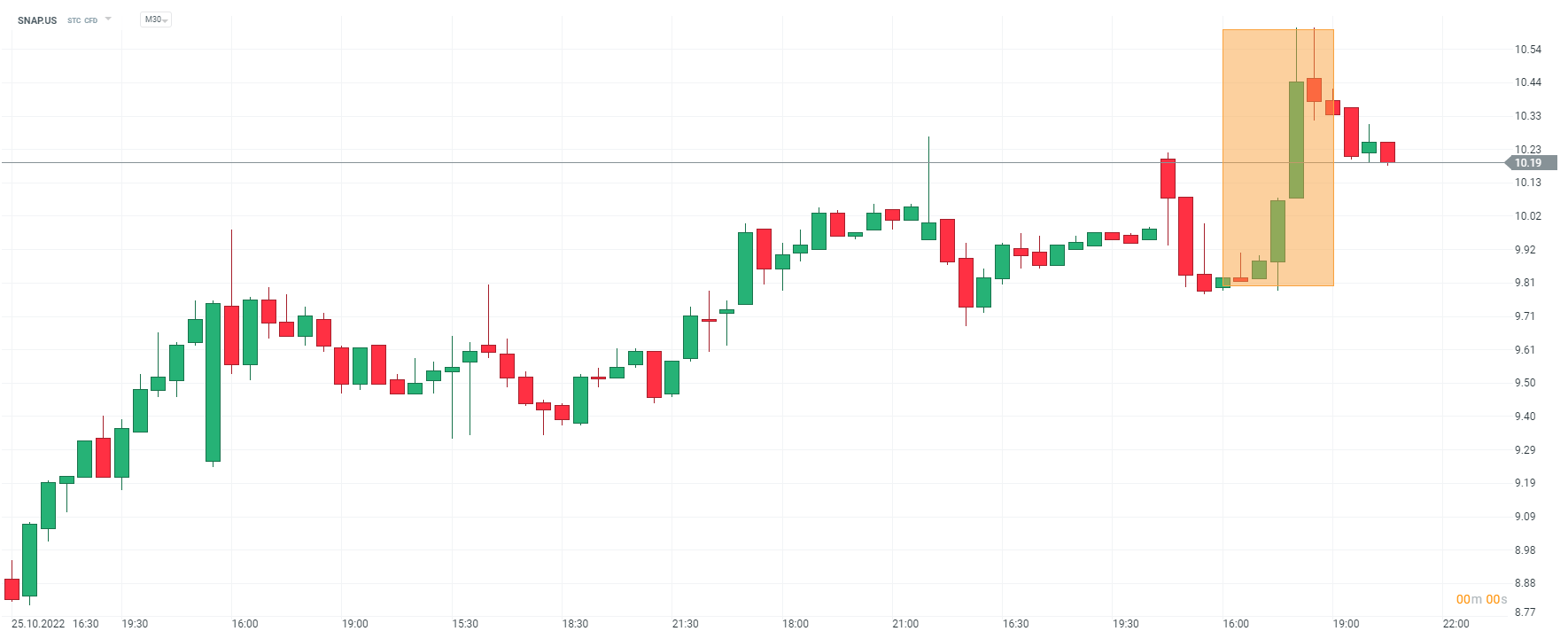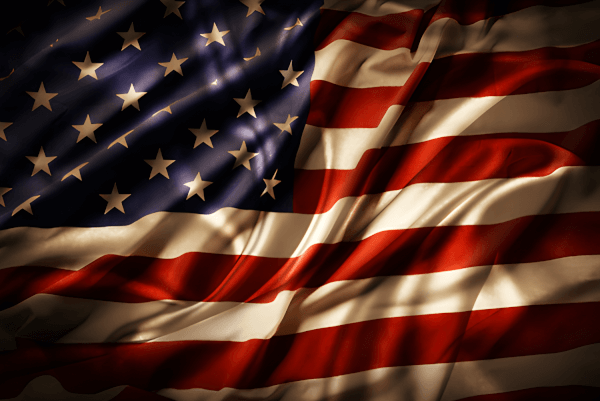Shares of MetaPlatforms and Snap have seen a huge sell-off this year, not only because of the slowdown in the advertising sector and investor uncertainty about the business, rising costs and expenses of the two companies. Sentiment has also been hurt by the fact that the TikTok platform developed by Chinese conglomerate ByteDance has proved more popular, with its recent growth rate beating leading 'competitor' mobile apps from both companies like Instagram and Snapchat. Tens of millions of users have begun to prefer the Chinese platform, resulting in a surge of advertisers and capital into TikTok. Will the Chinese giant continue to extend its lead over US competitors?
Troubled TikTok's past
The Federal Trade Commission back during Donald Trump's administration planned to block TikTok, WeChat was also on the regulators' target at the time. Regulators pointed TikTok's connection to other apps from Chinese company ByteDance, Douyin, and to the fact that the data posted on TikTok could be 'an apparatus for spying on US citizens and obtaining sensitive data'. However, by way of explanations submitted by TikTok, it turned out that the servers are neither located in China Unicom Americas' cloud nor the one owned by Alibaba, and can only be accessed by ByteDance. Nonetheless, the ban on the US territory was supposed to go into effect on September 20, 2020, but was stopped by ByteDance's agreement with Oracle. Ultimately, the ban also did not go into effect on September 27 after Judge Carl Nichols blocked the removal of the apps from Google Play and the AppStore, as requested by ByteDance.
The prospect of being blocked did not particularly please influencers, who launched a lawsuit on the matter, which was successful. The argument that the platform's videos are informational materials helped. The court adjudicating the case recognized their similarity to works of art, which are covered by special laws. In the end, the blockade did not happen, and TikTok was still able to grow and gain millions of users despite regulators' attempts to block it.
The United States is taking China looks seriously
The China - United States trade war is growing. According to the New York Times, a recent intelligence report identified, among other things, Chinese drones as one of the potential causes of sightings of unexplained aerial phenomena on U.S. soil so-called UAPs (Unidentified Aerial Phenomena) between 2004 and 2021. Just yesterday, SpaceX's largest rocket, the Falcon Heavy, as part of a secret US Space Force mission, USSF-144, launched satellites that, according to enigmatic comments from Space Force Command, will be able to track and identify threats from objects in space. It seems likely that the increasingly tense relations between Washington and Beijing have moved the 'rivalry' not only into the space domain but also into the information and technology domain.
Does the Federal Communications Commission want a blockade?
According to reports from the commissioner of the Federal Communications Commission (FCC), Brendan Carr , regulators in the US currently see no other way than to block access to TikTok. An interview with Carr appeared on Axios. The reason for such a decision is, of course, ponderously concerns about the processing of data of US users of the app. It seems that in the face of current geopolitical conditions, influencer protests may not be enough. Back in June, Carr sent a letter on the matter to Apple and Google to have the companies remove TikTok in mobile apps. Forbes reports that TikTok planned to track the data of platform participants in the United States. ByteDance has consistently maintained that nothing of the sort is happening, however. The United States is concerned that the app will publish videos and hidden content favorable to Beijing, showing reality in a 'Chinese mirror.' According to BuzzFeed reports, ByteDance was said to have, among other things, instructed employees on how to promote content favorable to the Chinese government in the TopBuzz app, the conglomerate has denied this.
The Chinese conglomerate is negotiating an injunction under which, in order to proselytize in the US, it was supposed to transfer its operations to a US-registered company. However, the New York Times pointed out that Justice Department officials are concerned about whether the company will actually-even if it moves to the US-have adequate independence from China. ByteDance has already managed to address Brendan Carr's comments and pointed out that the Federal Communications Commission is not involved in these negotiations. In September of this year, TikTok was suspected of illegally collecting children's personal data in the UK, but still nothing has been proven to the company. In the summer, in turn, we could come across BuzzFeed information according to which TikTok employees from China had access to non-public data of American users of the platform.
A flashpoint?
It seems that blocking TikTok is now becoming more possible than ever before. Carr, in an interview with Axios, stressed that "there is no world in which you can come up with sufficient protection for data that you can be reasonably sure won't end up back in the hands of the Chinese Communist Party." Still Carr comments are not enough to decide about real TikTok's blocade, but probably we can expect further regulators comments.
Even if the company is indeed a victim of U.S. policies preemptively placing 'national security above all else,' we can expect that regulators, if given the green light, will find the right leverage to force Google or Apple to 'obey'. Similarly, recently semiconductor manufacturers AMD, Nvidia or Intel have been forced by regulation to withdraw exports of advanced chips to China, their largest global market. Similarly, now the tech giants may be 'persuaded' to withdraw the TikTok platform from their stores. Interestingly, in recent days, anonymous sources have indicated that following the acquisition of Twitter, Elon Musk is setting his IT team to revamp and re-release the 'Vine' application, which Twitter acquired in 2012. The platform was a forerunner in sharing short, 6-second videos, but suspended operations in 2016. IT experts estimate that rebuilding the old Vine code may be difficult but not impossible.
A likely scenario in the event of Twitter's withdrawal would be a surge of users to Snap and Instagram and an increase in the average amount of time users spend on both apps. This could have a positive impact on the virtues of Meta Platforms and Snap, which, after the 'liquidation' of their main competitor, would once again be the primary 'base' for advertisers. On the other hand, it should be taken into account that the United States may fear a reaction from China, on whose territory there are still production facilities owned by corporations like Apple and Tesla. Interestingly, major techs, including Apple have already started a planned relocation of production from China. According to a JP Morgan report, Apple intends to produce 1/4 of its iPhones in India by 2025. The blockade of TikTok could prove to be a turning point in the US-China 'trade war'. However, the company, ByteDance, is still confident that it will be able to continue operating and convince regulators that TikTok does not pose a threat to national security. Snap (SNAP.US) shares, M15 interval. Snap shares reacted euphorically to reports of a possible re-discussed blockade of TikTok. Source: xStation5
Snap (SNAP.US) shares, M15 interval. Snap shares reacted euphorically to reports of a possible re-discussed blockade of TikTok. Source: xStation5
XTB Research

Daily summary: Silver plunges 9% 🚨Indices, crypto and precious metals under pressure

Does the current sell-off signal the end of quantum companies?

Howmet Aerospace surges 10% after earnings reaching $100 bilion market cap 📈

US Open: Cisco Systems slides 10% after earnings 📉 Mixed sentiments on Wall Street
The content of this report has been created by XTB S.A., with its registered office in Warsaw, at Prosta 67, 00-838 Warsaw, Poland, (KRS number 0000217580) and supervised by Polish Supervision Authority ( No. DDM-M-4021-57-1/2005). This material is a marketing communication within the meaning of Art. 24 (3) of Directive 2014/65/EU of the European Parliament and of the Council of 15 May 2014 on markets in financial instruments and amending Directive 2002/92/EC and Directive 2011/61/EU (MiFID II). Marketing communication is not an investment recommendation or information recommending or suggesting an investment strategy within the meaning of Regulation (EU) No 596/2014 of the European Parliament and of the Council of 16 April 2014 on market abuse (market abuse regulation) and repealing Directive 2003/6/EC of the European Parliament and of the Council and Commission Directives 2003/124/EC, 2003/125/EC and 2004/72/EC and Commission Delegated Regulation (EU) 2016/958 of 9 March 2016 supplementing Regulation (EU) No 596/2014 of the European Parliament and of the Council with regard to regulatory technical standards for the technical arrangements for objective presentation of investment recommendations or other information recommending or suggesting an investment strategy and for disclosure of particular interests or indications of conflicts of interest or any other advice, including in the area of investment advisory, within the meaning of the Trading in Financial Instruments Act of 29 July 2005 (i.e. Journal of Laws 2019, item 875, as amended). The marketing communication is prepared with the highest diligence, objectivity, presents the facts known to the author on the date of preparation and is devoid of any evaluation elements. The marketing communication is prepared without considering the client’s needs, his individual financial situation and does not present any investment strategy in any way. The marketing communication does not constitute an offer of sale, offering, subscription, invitation to purchase, advertisement or promotion of any financial instruments. XTB S.A. is not liable for any client’s actions or omissions, in particular for the acquisition or disposal of financial instruments, undertaken on the basis of the information contained in this marketing communication. In the event that the marketing communication contains any information about any results regarding the financial instruments indicated therein, these do not constitute any guarantee or forecast regarding the future results.


